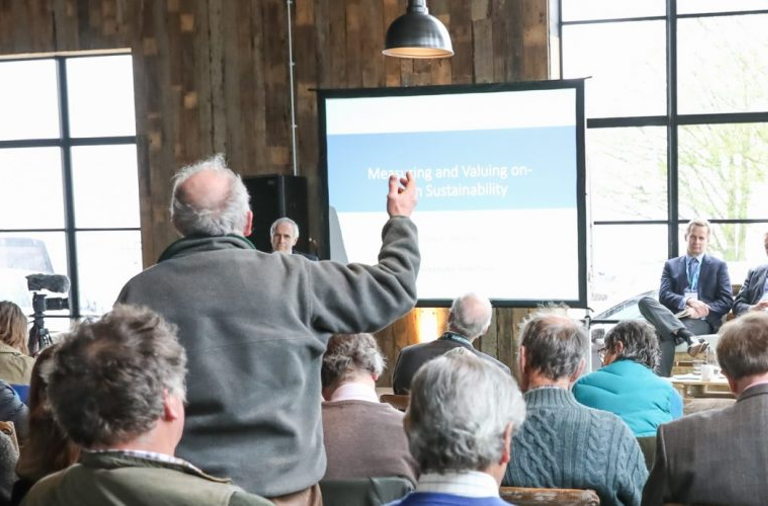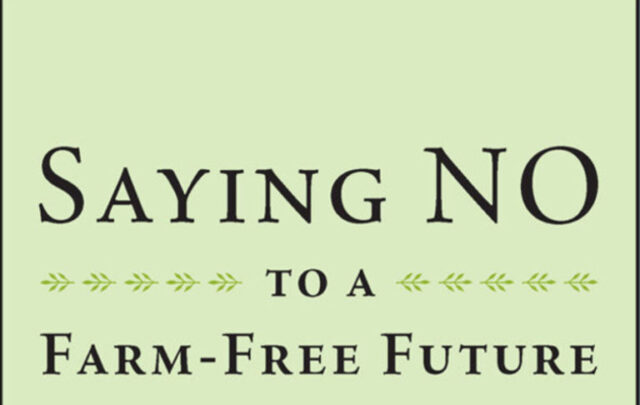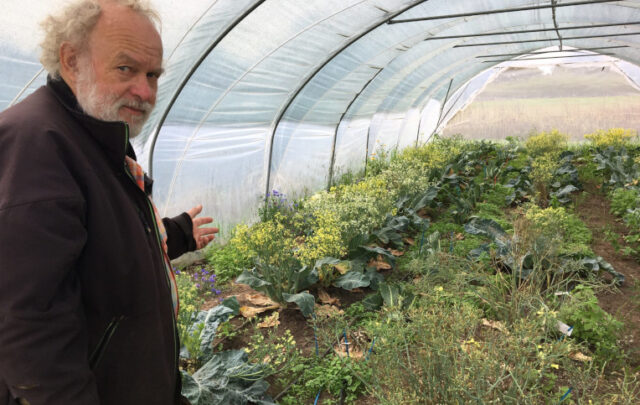At The Future of UK Farming conference this April, The Sustainable Food Trust’s Patrick Holden chaired a session on “Measuring and Valuing Sustainability”. Joined by Edward Parsons of the Waddesdon Estate, Dieter Helm of the Natural Capital Committee, Helen Browning of the Soil Association and Andrew Sells of Natural England, the panel discussed how to transform the economic environment for sustainable food production by empowering farmers to deliver measurable public goods.
To achieve this, farmers need a meaningful tool for measuring progress and the government need a way of assessing the impact of their policies. Currently, assessing field to fork sustainability involves multiple and overlapping audits that are needed to satisfy numerous different stakeholders, both at farm level and throughout the supply chain. The first thing to do, argued Dieter Helm, must be to stand back and ask, “What questions are these assessments trying to answer, and what are we actually trying to achieve?”
In order to understand how we could simplify the current system, a ‘whole farm’ integrated sustainability assessment is necessary. This would reduce the burden on producers, providing a tool for government to help determine eligibility for and the impact of public money, whilst informing consumers about the true sustainability of products in the market place.
To pursue this idea, the SFT have convened a working group of farmers and land managers, representing a wide range of farming systems and scales, to consider the best way to converge existing sustainability assessment tools. Over the last two years, the group have made significant progress on identifying the crossovers and gaps within existing schemes, and have begun developing a harmonised framework and common language for assessing the sustainability of all farming systems. Much like the financial accounting protocols, there are hundreds and thousands of auditors and software programmes for monitoring accounts, but they all more or less use the same language and framework which allows for meaningful comparison and true accountability – we now see the same need for measuring and valuing the sustainability of our food and farming systems on an international scale.
The session at Fir Farm included a detailed analysis of the concept of ‘natural capital’ and how it applies to agriculture, with each of the panellists agreeing that the environment must be at the heart of the economy and the two should never be in conflict. “In the past,” argued Helm “we’ve focused on physical, man-made capital and excluded natural capital.” However, “not putting a value on these assets is precisely wrong,” he asserted. He went on to pose a series of core questions that must be answered by the agricultural sector. Namely, “What are the public goods that agriculture can provide to society? How much should farmers be paid for providing them?” and “How much scarce public money should be spent on protecting and enhancing the competing bits of the natural environment that we want to look after?” Helm argued that we need to enforce concrete legislation that holds government accountable. “We cannot hand the next generation houses they can’t afford, and an environment that isn’t fit for purpose,” he stated.
Putting a value on natural assets is a complicated issue. Andrew Sells cautioned that we must make sure that the Natural Capital concept doesn’t overemphasise assets that we can easily value and underestimate those that we cannot. Landscapes and species in decline are difficult to value, argued Sells, but “we have a moral duty to try and save species with whom we share the planet,” – an issue which goes far beyond economics and accounting.
Meanwhile Helen Browning warned that relying on prescriptive input standards is not enough and that an outcomes approach to sustainability measurement would be very valuable in allowing farmers to benchmark themselves against others, reducing the risk to certifiers and improving consumer visibility. However, the transition to this system is not easy, and at the moment the outcome metrics are nowhere near good enough to rely on for a payment basis. Edward Parsons, who is a member of the farmer working group involved in the Sustainability Metrics project, confirmed that it’s a tough process; however, he argued, there’s not a farmer in the country who would prefer to spend three times as long answering questions if there were a far more efficient system at their fingertips.
Following a series of questions from the audience, it was concluded that a new system for measuring on-farm sustainability would not only encourage the right kinds of practice, but enable an efficient way of checking farmers are delivering public goods and feeding this information back into agricultural standards in a virtuous circle. The SFT and our farmers and land managers working group are continuing to develop the sustainability assessment framework, working with farmers, government, farm assurance schemes and NGOs to understand how to move forward in a way which provides benefits to all.
For a more detailed update on this work, please see our response to DEFRA’s Health and Harmony consultation paper. If you have ideas related to this project or are interested in becoming involved, please contact adele@sustainablefoodtrust.org.
To watch the rest of the films from The Future UK Farming conference click here.
Photo Credit: Chloe Edwards





